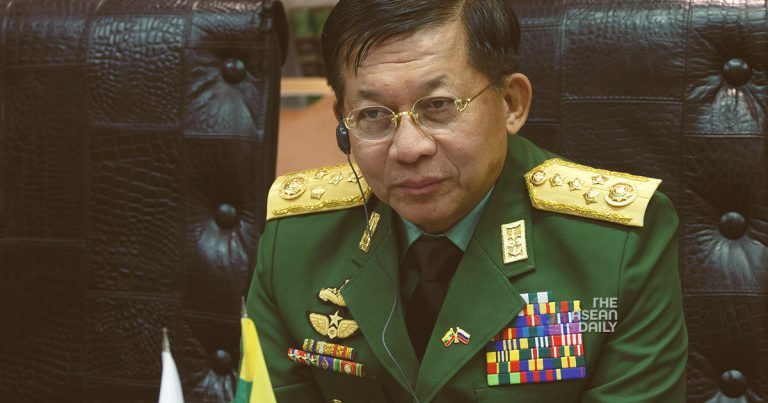27-9-2024 (YANGON) Myanmar’s embattled military junta has extended an invitation to armed opposition groups to cease hostilities and engage in peace talks. This surprising overture comes after more than three years of intense conflict that has ravaged the country since the military’s seizure of power in 2021.
The junta’s call for dialogue arrives at a critical juncture, as it grapples with significant battlefield losses to ethnic minority armed groups and the pro-democracy “People’s Defence Forces” (PDFs). These setbacks, coupled with the devastating aftermath of Typhoon Yagi, which has claimed over 400 lives and left hundreds of thousands in dire need of assistance, have put unprecedented pressure on the military regime.
In a statement, the junta appealed to “ethnic armed groups, terrorist insurgent groups, and terrorist PDF groups” to abandon armed resistance and “communicate with us to solve political problems politically.” This marks a significant shift in rhetoric from the military, which has previously shown little inclination towards negotiation.
The military’s ousting of Aung San Suu Kyi’s democratically elected government in February 2021 sparked widespread protests, met with brutal repression. This, in turn, led to the formation of civilian-led PDFs and reinvigorated long-standing conflicts with ethnic minority armed groups, plunging Myanmar into a state of civil war.
However, the junta’s olive branch has been met with scepticism from some quarters. Padoh Saw Taw Nee, a spokesperson for the Karen National Union (KNU), one of the country’s oldest ethnic armed groups, laid out stringent conditions for any potential talks. These include the military’s withdrawal from politics, agreement to a federal democratic constitution, and accountability for alleged war crimes and crimes against humanity.
The military’s proposal comes against a backdrop of significant territorial losses, particularly in border regions. A coalition of ethnic minority armed groups has made substantial gains, including the capture of Lashio, the largest urban centre to fall to rebels since 1962.
Domestically, the junta faces growing resistance to its rule. The enforcement of a military draft law in February has prompted a mass exodus of young people fleeing conscription. Meanwhile, human rights organisations continue to document widespread abuses, with over 5,700 civilians reportedly killed and more than 20,000 arrested since the coup.
The United Nations recently warned of Myanmar’s descent into a human rights “abyss,” detailing shocking accounts of torture in military custody. These reports have further eroded the junta’s legitimacy both domestically and on the international stage.




